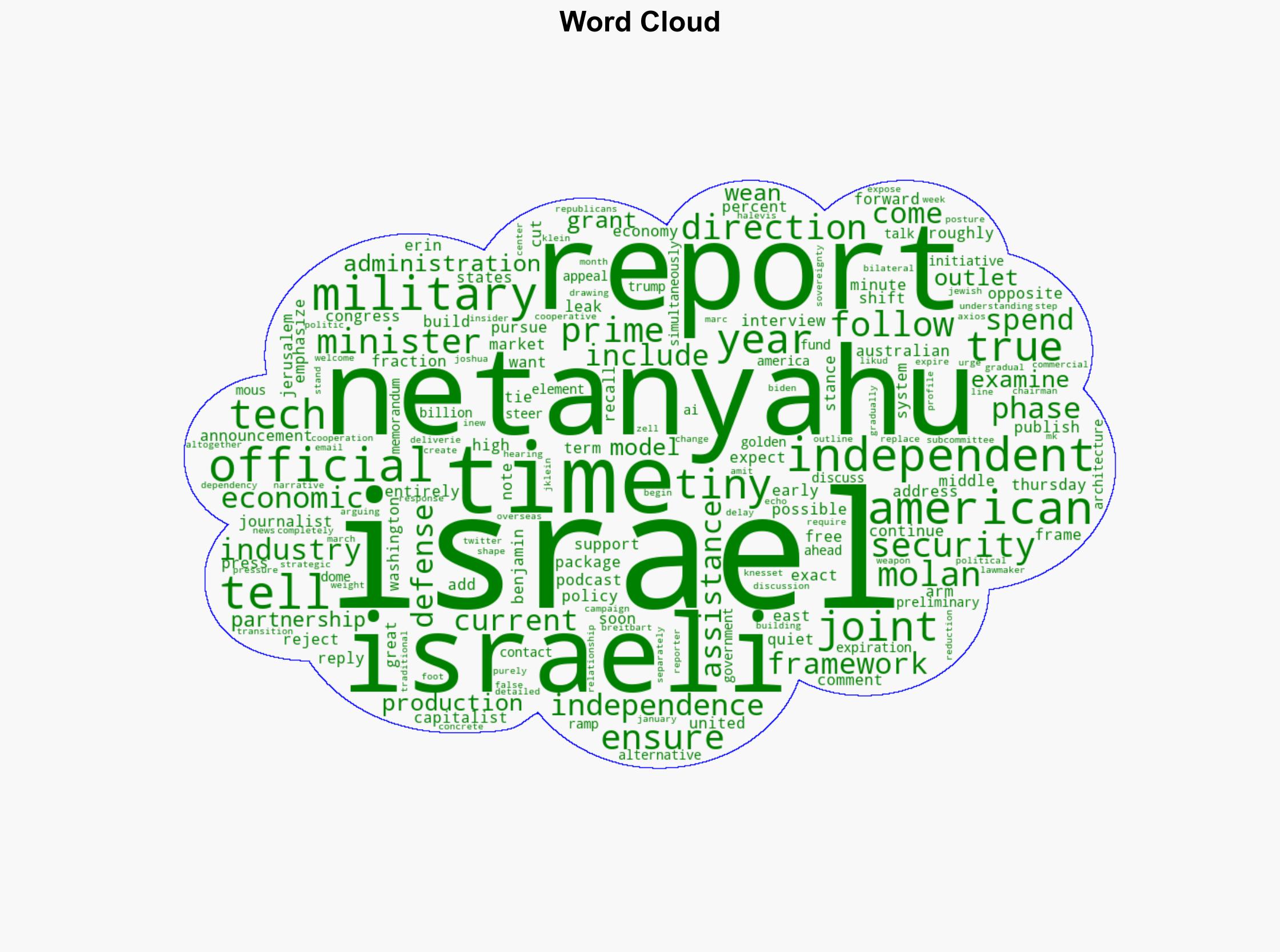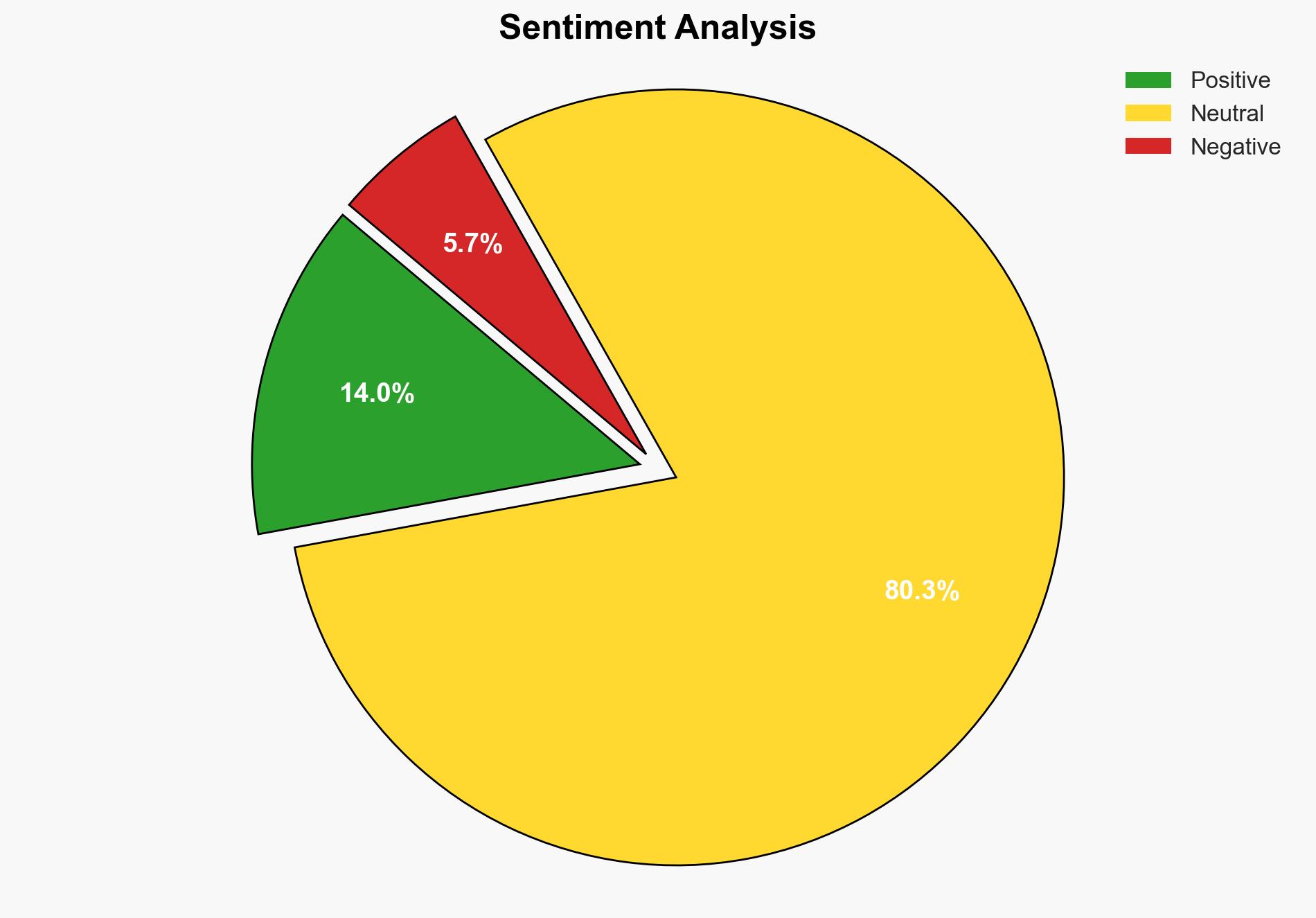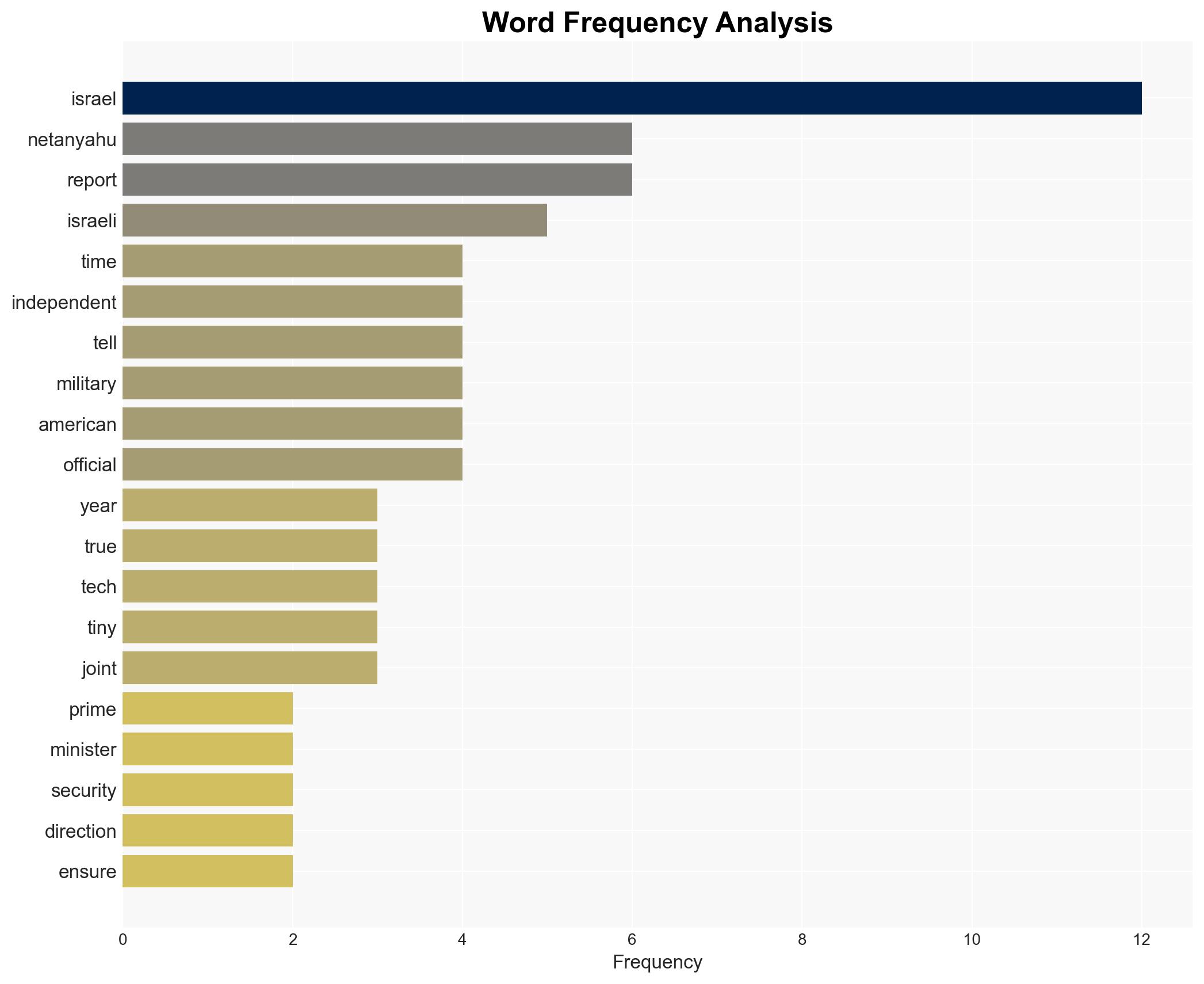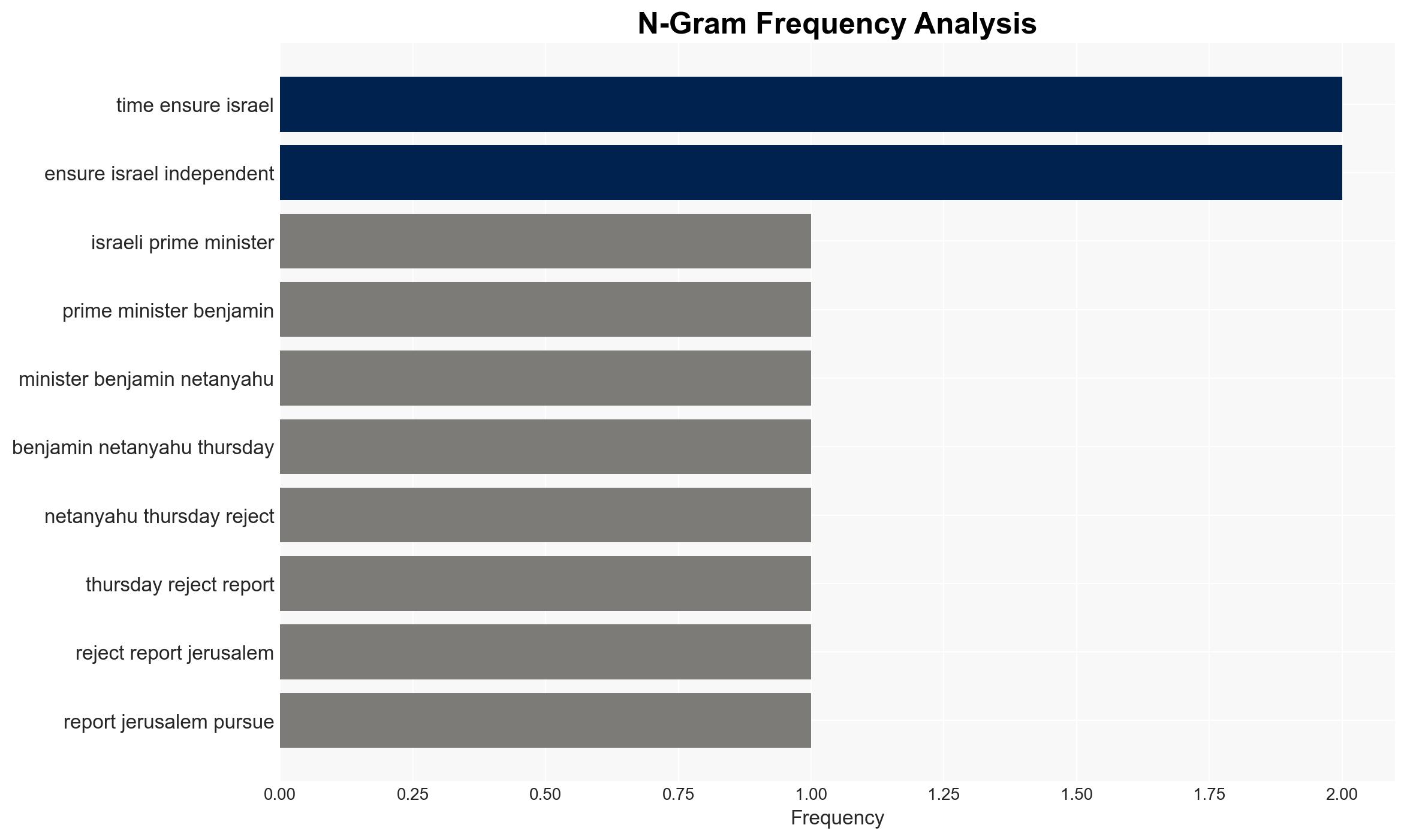Netanyahu Israel Not Seeking Long-Term US Military Aid Nation Is Moving Toward Greater Independence – Breitbart News
Published on: 2025-11-14
AI-powered OSINT brief from verified open sources. Automated NLP signal extraction with human verification. See our Methodology and Why WorldWideWatchers.
Intelligence Report: Netanyahu Israel Not Seeking Long-Term US Military Aid Nation Is Moving Toward Greater Independence – Breitbart News
1. BLUF (Bottom Line Up Front)
With a moderate confidence level, the most supported hypothesis is that Israel is strategically positioning itself to reduce dependency on U.S. military aid in favor of developing its own defense capabilities and fostering a more balanced bilateral relationship. Recommended actions include monitoring Israel’s defense industry developments and U.S.-Israel diplomatic engagements to anticipate shifts in regional power dynamics.
2. Competing Hypotheses
Hypothesis 1: Israel is genuinely moving towards greater military and economic independence to reduce dependency on U.S. aid and enhance its sovereignty.
Hypothesis 2: Netanyahu’s statements are primarily rhetorical, aimed at negotiating better terms in future U.S. aid agreements or to appease domestic political pressures.
Hypothesis 1 is more likely given the consistent narrative from Israeli officials about reducing dependency and the strategic focus on developing indigenous defense technologies. However, Hypothesis 2 cannot be entirely dismissed due to potential political motivations and the complexity of U.S.-Israel relations.
3. Key Assumptions and Red Flags
Assumptions:
- Israel has the capability and resources to develop a self-sufficient defense industry.
- U.S. political dynamics will not drastically alter the current aid framework in the short term.
Red Flags:
- Potential overestimation of Israel’s ability to achieve full military independence.
- Domestic political pressures influencing Netanyahu’s public statements.
Deception Indicators:
- Inconsistencies between public statements and private diplomatic engagements.
4. Implications and Strategic Risks
Potential implications include a shift in regional power dynamics as Israel becomes more self-reliant, possibly leading to increased tensions with neighboring countries. Economically, Israel’s defense industry could become a significant player in the global market. Politically, a reduced dependency on U.S. aid might alter Israel’s leverage in bilateral negotiations. Cyber and informational risks could arise if Israel’s technological advancements provoke adversarial actions.
5. Recommendations and Outlook
- Monitor developments in Israel’s defense industry and technological advancements.
- Engage in diplomatic dialogues to understand U.S. and Israeli strategic intentions.
- Prepare for potential shifts in regional alliances and power structures.
Best Scenario: Israel successfully transitions to a more independent defense posture, enhancing regional stability.
Worst Scenario: Missteps in policy lead to increased regional tensions and economic strain.
Most-likely Scenario: Gradual reduction in U.S. aid with increased focus on joint technological projects.
6. Key Individuals and Entities
Benjamin Netanyahu, Erin Molan, Marc Zell, Amit Halevi, Joshua Klein
7. Thematic Tags
Middle East, U.S.-Israel Relations, Defense Industry, Sovereignty, Military Aid
Structured Analytic Techniques Applied
- Causal Layered Analysis (CLA): Analyze events across surface happenings, systems, worldviews, and myths.
- Cross-Impact Simulation: Model ripple effects across neighboring states, conflicts, or economic dependencies.
- Scenario Generation: Explore divergent futures under varying assumptions to identify plausible paths.
Explore more:
Regional Focus Briefs ·
Daily Summary ·
Methodology





